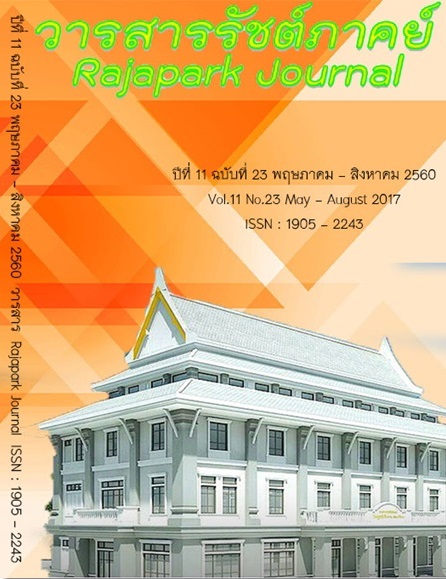Political Processes Regarding Mobilization for the Bangkok Rules and Their Implementation
Main Article Content
Abstract
In this dissertation, the researcher examines the following: (1) In respect to the political processes involved in the mobilization of the Bangkok Rules, it was found that the Bangkok Rules originated with a project for improving the treatment of female prisoners (Kamlang Chai Project). The project was broached in the world forum provided by the 65th annual session of the General Assembly of the United Nations (2010) under the rubric of the United Nations Rules for the Treatment of Women Prisoners and Non-custodial Measures for Women Prisoners (the Bangkok Rules). (2) The researcher found that the implementation process of the Bangkok Rules in the Thai environment was more or less the same as what was stipulated in the UN rules. The area for receiving inmates was clearly delineated. Self-care knowledge was provided. General health checking was provided. No fetters and handcuffs were used for pregnant inmates and for postpartum prisoners. Facilities for personal worshipping were provided. Pre-release preparations were made for female inmates. (3) Problems and obstacles encountered in the implementation of the Bangkok Rules were as follows: It was found that problems involved the aspects of the workforce of officials and support lent by various agencies in addition to severe lacunae in knowledge and understanding of the importance of the Bangkok Rules and poor motivation on the part of officials. Problems were also generated by the sites of incarceration and the behaviors of custodial officials. Another problem was the needs to accommodate differences between prisoners, as well as the problem of the practice of discrimination against female inmates.
Article Details
Views and opinions appearing in the Journal it is the responsibility of the author of the article, and does not constitute the view and responsibility of the editorial team.


